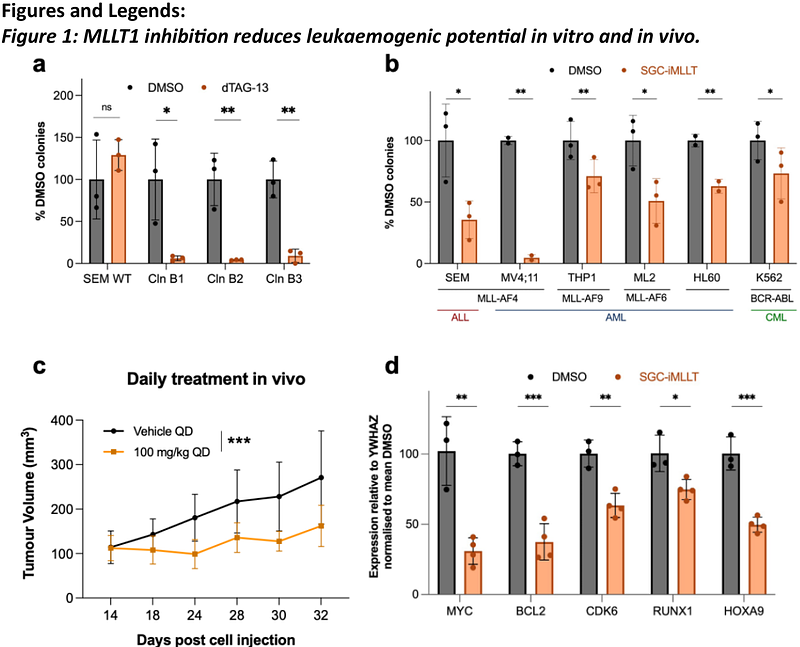Inhibition of MLLT1 limits growth of MLL-AF4 leukaemias without killing healthy haematopoietic stem cells

Inhibition of MLLT1 limits growth of MLL-AF4 leukaemias without killing healthy haematopoietic stem cells
Rajhansa, S.; Crump, N. T.; Khoo, H. M.; Bozhilov, Y.; Brennan, P. E.; Fedorov, O.; Adams, C.; Farnie, G.; Milne, T. A.; Wilkinson, A. C.
AbstractA major challenge in cancer therapeutics has been the identification of targets that are selectively toxic to cancer cells while displaying limited effects on healthy counterparts. Toxicities related to blood production from haematopoietic stem and progenitor cells (HSPCs) can be particularly problematic and result in patient morbidity and mortality. Within haematological malignancies, therapy response rates and patient survival vary widely between cancer subtypes, with leukaemias driven by the MLL-AF4 fusion protein associated with poor prognosis. MLLT1 has been recently identified as a key potential target in acute myeloid leukaemia. Here we evaluated a panel of leukaemia cell lines and healthy HSPCs for their sensitivity to the MLLT1 inhibitor SGC-iMLLT. We found that SGC-iMLLT strongly inhibited MLL-AF4-driven leukaemia growth in vitro and in vivo. By contrast, SGC-iMLLT did not alter in vitro colony forming potential of human HSPCs or affect long-term in vivo function of mouse HSPCs. These results suggest that SGC-iMLLT may have a promising therapeutic window in the treatment of MLL-AF4-driven leukaemias, and that further clinical development is warranted.